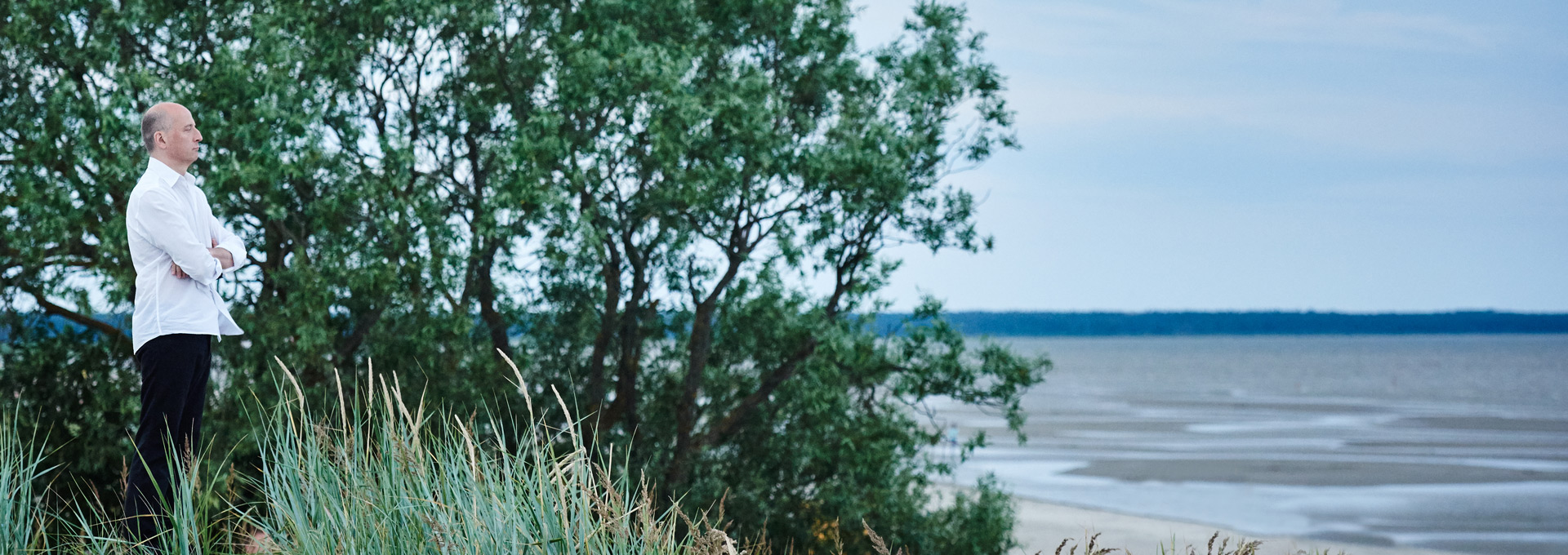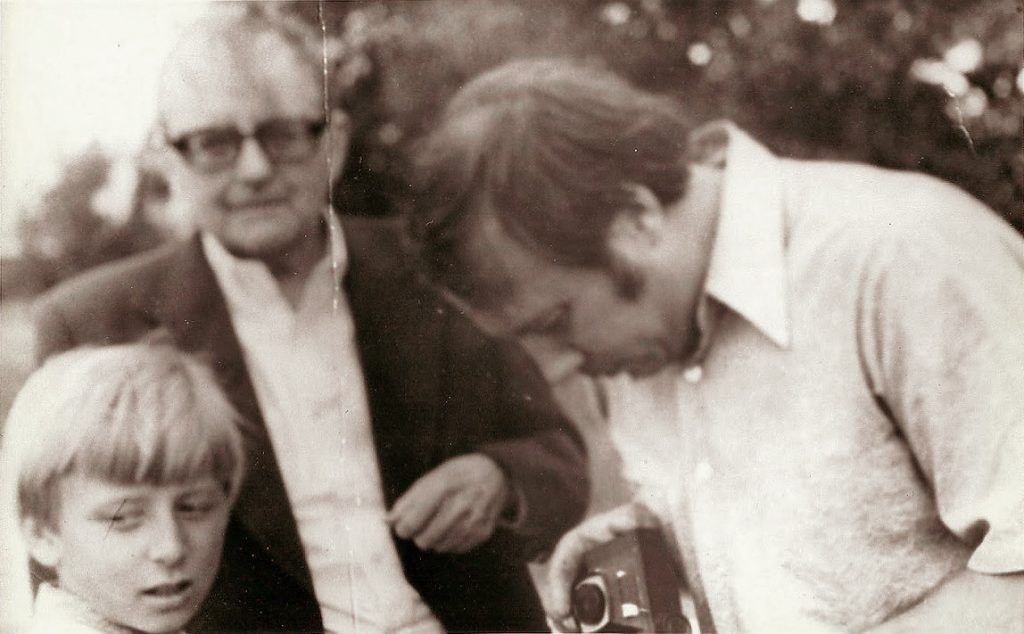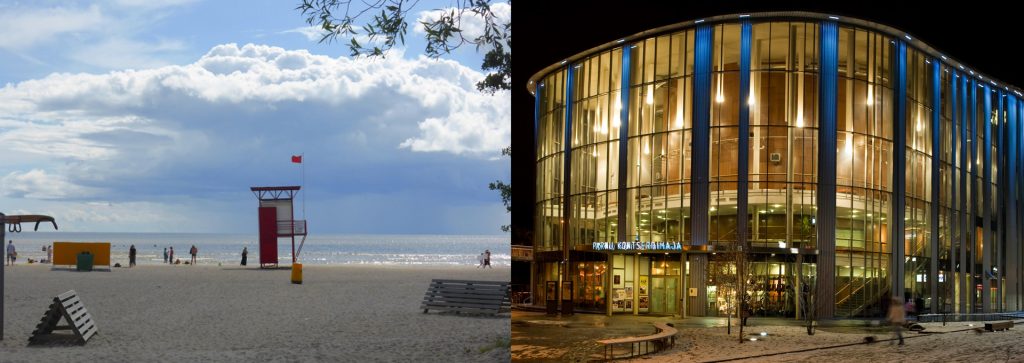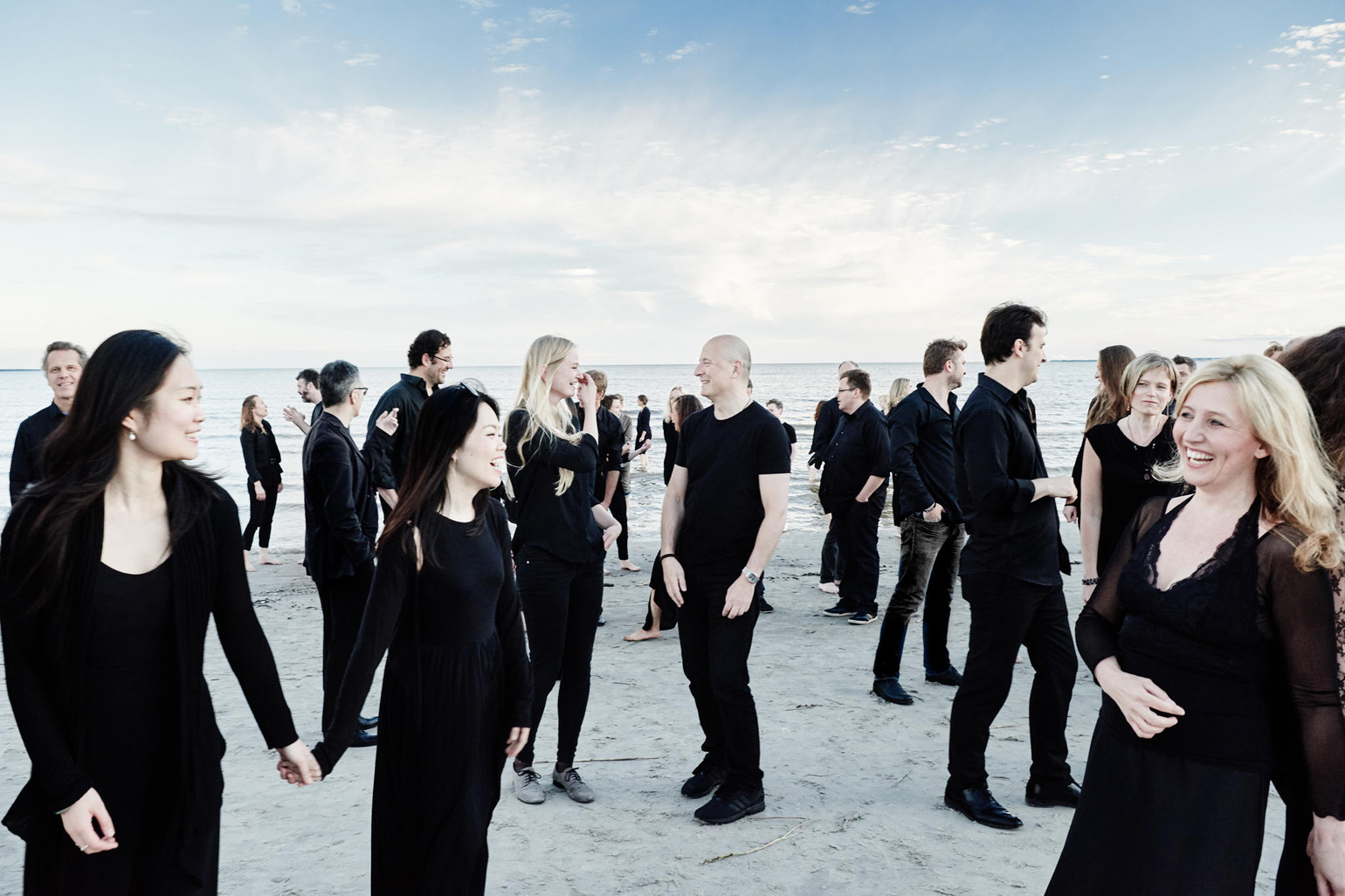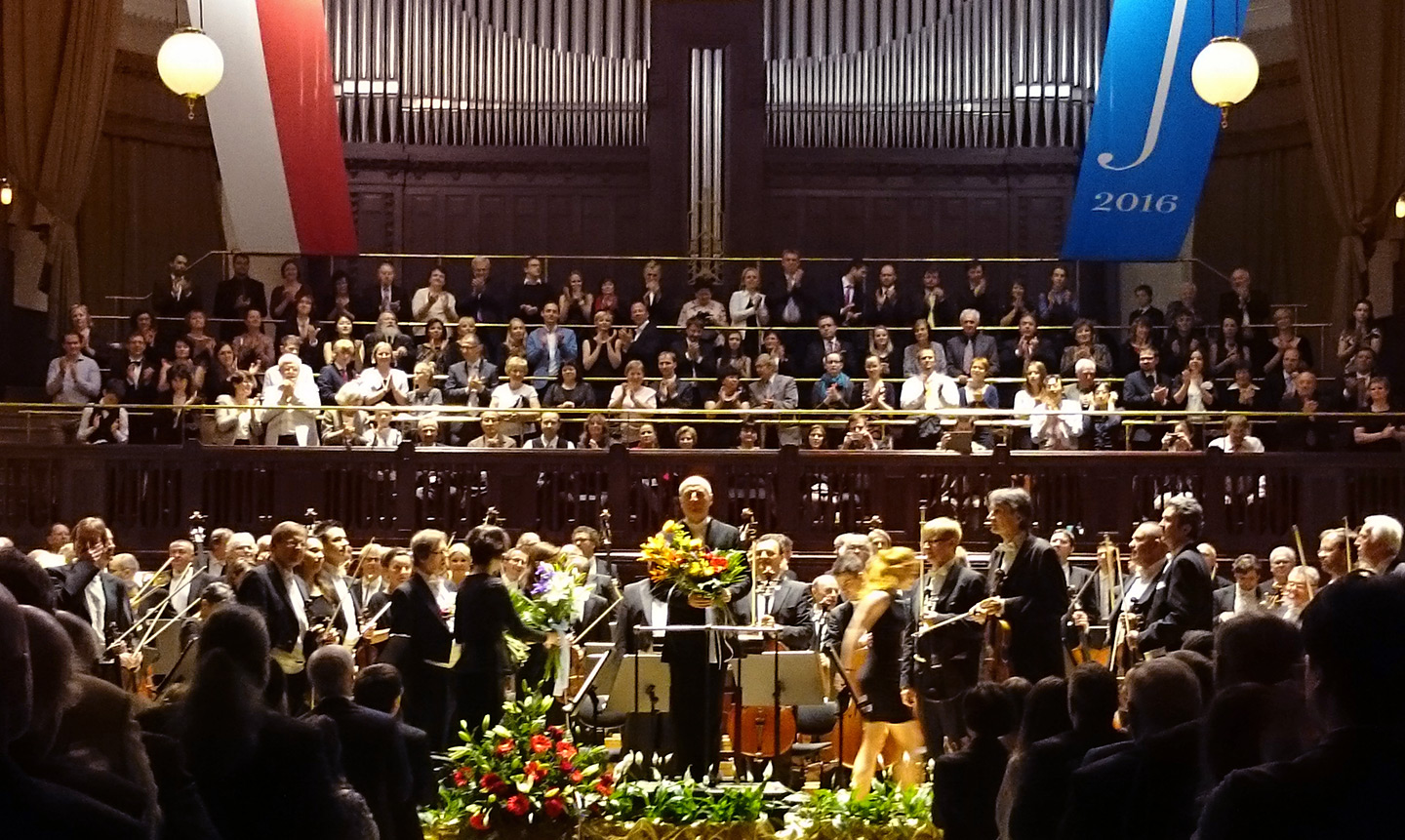Pärnu-intro
Paavo Järvi’s family festival in Estonia celebrates its 14th year. Alongside the annual Järvi Academy Conducting Masterclasses, the 2024 festival features the internationally acclaimed Estonian Festival Orchestra in four concerts with guest soloists Ksenija Sidorova (accordion), Alisa Weilerstein (cello), Kirill Gerstein (piano) and Hans Christian Aavik (violin). This summer also sees the start of a new, annual initiative to commission works from female Estonian composers, commencing with world-premieres by Helena Tulva and Maria Kõrvits.
» Read more about Pärnu Music Festival
Parnu-post
> Visit Pärnu Music Festival’s website
“The weeklong music festival run by Paavo Järvi in the idyllic seaside town of Pärnu is a symbol of its country’s highest cultural ties with the best of the rest of Europe.”
[David Nice, The Art Desk, 2015]
The Pärnu Festival and Järvi Academy were founded by Paavo Järvi in 2010 together with his father, Neeme Järvi, and it’s family atmosphere envelopes the visiting musicians, students and audience alike creating a unique summer refuge on the Estonian coast.
Having grown up in Tallinn, Pärnu has always held a special place in Paavo’s heart as it was where the family traditionally gathered for summer holidays. During occupation it was also the summer home of artists including Dmitri Shostakovich and David Oistrakh who visited for the nearest thing to western tolerance and understanding in the Soviet Union, it was a place for artists to relax and enjoy each other’s company and it was here in 1973 that a young Paavo met Shostakovich for the first time.
It was also here that David Oistrakh invited musicians and students to join him for ad hoc performances in the little green Dacha which he rented each summer before his death in 1974. It was in this spirit that Paavo Järvi decided to return to Pärnu, surrounded by his family, and create a festival offering masterclasses to international young conductors, creating an Academy Orchestra comprising the very best of young Estonian musical talent and the Estonian Festival Orchestra – hand-picked by Paavo, including professional Estonian musicians complemented by soloists from the top European orchestras. In addition to playing in the Festival Orchestra, these guest musicians also perform chamber music concerts and offer advice to the younger generation of musicians.
“There isn’t a hint of a hothouse environment on stage – these are simply musicians having the time of their lives, no small thanks to the inspiring Paavo Järvi himself, and they’re an inspiration, in turn, to the festival youth orchestra.”
[BBC Music Magazine]
The week long festival takes place in various locations throughout the town including the church of St Elizabeth – founded in 1741 when the Russian empress donated 8000 roubles for its construction. Children’s concerts take place in one of the numerous spa hotels where families gather after long days on the beach and the main festival concerts take place in the elegant 1000 seater concert hall, built in 2002 and widely regarded as having one of Estonia’s best acoustics.
This summer sees the start of a new, annual initiative to commission works from female Estonian composers, commencing with world-premieres by Helena Tulva and Maria Kõrvits. “Since the inauguration of the Pärnu Music Festival we have regularly championed new music and Helena Tulva was our Composer in Residence already in 2012” says Paavo Järvi. “Today Helena is not only one of Estonia’s most influential composers but also the guiding light to a younger generation of composers, including her student Maria Kõrvits. I am delighted that we will be presenting world-premieres from two such talented artists, both of whom have very different and individual voices. Maria’s new chamber piece will be unveiled in the Gala Concert on 16 July and I look forward to seeing the score of Helena’s latest orchestral work, which I will conduct the premiere of with the Estonian Festival Orchestra in the closing festival concerts on 18 and 19 July.”
Neeme Järvi and the Järvi Academy Youth Symphony Orchestra open the festival with Beethoven Symphony No. 1, Schubert’s Unfinished Symphony and Friedrich Gulda’s seldom heard Concerto for Cello and Wind Orchestra with soloist Indrek Leivategija (10 July). The following night Kristjan Järvi and the BSP plunge us “deep into the soul of Estonian and Nordic folklore”, with a performance that intertwines new works with reimagined masterpieces by Sibelius, Tormis, Pärt, and Tchaikovsky (11 July).
For the first of four concerts with Paavo Järvi and the Estonian Festival Orchestra (EFO), accordian soloist Ksenija Sidorova returns to Pärnu to give the world premiere of a new work by Tõnu Kõrvits (13 July), in a programme which also features Bizet’s Roma Symphony.
The soloist in Bruch’s Violin Concerto, for the EFO’s second concert is young Estonian violinist, Hans Christian Aavik, winner of the 2022 Carl Nielsen Competition. Hans Christian also leads the concert funded by the Estonian Foundation of Musical Instruments (15 July) which supports upcoming musicians by loaning valuable instruments, whilst his brother Henri Christofer Aavik, is the conductor of the late night concert (15 July) featuring flute soloist Maarika Järvi.
Making their first appearances at the festival are international guest soloists Alisa Weilerstein (cello) and Kirill Gerstein (piano), who join Paavo Järvi and the EFO for performances of Elgar’s Cello Concerto (19 July) and Rachmaninoff’s Rhapsody on a Theme of Paganini (20 July). Both concerts also present the world premiere of Helena Tulve’s latest work, the composer’s first orchestral piece since 2013 and the closing commission of this year’s festival.
In the lead up to the festival, Alpha Classics will release the Estonian Festival Orchestra’s fifth album with Paavo Järvi. “Ship of Fools”, is dedicated to three works by Jüri Reinvere, all premiered in recent years at the Pärnu Music Festival.
> Visit Pärnu Music Festival’s website
FROM PRAGUE TO LONDON & SMETANA TO NIELSEN
Last week Paavo Järvi had the honour of conducting the Czech Philharmonic in the inaugral concert of the 71st International Prague Spring Festival and tonight he returns to the stage at the Royal Festival Hall to continue his ongoing Nielsen Symphony Cycle with the Philharmonia in London.
Tonight’s programme, which features both the Nielsen Clarinet Concerto and Symphony No.3, follows the recent CD release of the complete Nielsen Symphony Cycle which Paavo recorded with the Frankfurt Radio Orchestra. Receiving international critical acclaim, RBB Radio (Germany) commented on the cycle: “With his Estonian musical family roots he has sucked the sound and thought world of the Baltic Seas as if, so to speak, it is his mother’s milk”, Pizzicato (Luxembourg) wrote “The refined and transparent orchestral playing make these vivid and colourful performances truly gripping” and Quobuz (France) concluded “Paavo Järvi captures all the malicious nature of the work of the Danes, and gives a performance which is both incredible and full of musical relevance, constantly exciting.”
